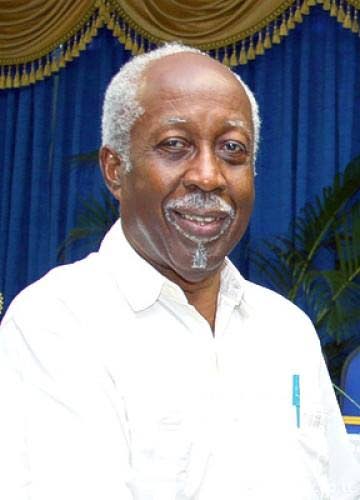A house of disassembly?

REGINALD DUMAS
“WHAT HAPPENS in the PNM stays in the PNM.” You’ve heard that often, haven’t you? But it didn’t seem to apply in the run-up to the party’s Tobago Council elections last year. Linen of all kinds was being washed publicly.
The council chairman, Stanford Callender, was a member of the Kelvin Charles slate. (Why a chairman should be on anyone’s slate I don’t know, but that’s the PNM’s business.) Inevitably, both men were accused of plotting to organise a Charles victory in the political leadership race.
Suspicions were intensified by Callender’s early insistence that only financial members of the party, and not the membership as a whole, would be allowed to vote. Party headquarters in PoS quickly snuffed that one out.
Callender, an occasional calypsonian, then sang a pro-Charles campaign tune. One of Charles’ female rivals took immediate and vocal offence at some of the lyrics: they were “debasing and misogynistic,” she charged. All innocence, Callender begged to differ: she had misunderstood.
That rival, Tracy Davidson-Celestine, defeated Charles and is now the political leader, while Callender was re-elected chairman. For Tobago’s sake, one hopes that mutual, co-ordinated trust and comprehension between them will break out, and persist.
The above events were played out in public. It was a most remarkable spectacle, one that Eric Williams, the party’s founder and disciplinarian par excellence, would have found impossible to recognise. But more was to come.
The party battle lost, Charles’ team now argued that he should complete his term as Chief Secretary (CS), due to end in early 2021. That might have worked but for two considerations.
First, the other sides in the struggle, scenting blood, targeted his political jugular: in our politics, they argued, only one person holds the two posts – he had lost one, the political leadership, and he had logically to give up the other.
It would be foolish to assume that Davidson-Celestine, having gained one of those posts, didn’t have her eye on the other. If she does obtain it, we shall see if she constantly respects the differences in function and responsibility between the two.
Second, Charles was held to be authoritarian and condescending, even to his own secretaries and public servants. A perception like that is always dangerous for a politician, and especially for one in a small society like Tobago. But in politics perception is often reality: you believe something to be the case, therefore it is the case.
Many in the public were openly saying they wanted to see his back. Even so, Charles didn’t leave at once. His agreement to demit office came only after a visit to Tobago by the maximum leader of the PNM, and Charles himself is the best person to say whether his agreement was entirely voluntary.
The ole mas’ continued. On May 6, the THA administration held a ceremony for the swearing-in, by the Assembly presiding officer, of a new CS, Ancil Dennis. The THA Opposition promptly announced its intention to challenge the process in court, apparently on the ground that the 1996 THA Act doesn’t make provision for a special sitting to swear in a new CS. That judicial threat has now been dropped, though other action is promised.
Then on May 12 Dennis was sworn in again, this time by President Weekes, who has firmly stated that “(t)he CS can only take his oath, as CS, before the President.” Who advised the presiding officer differently?
And I was astonished by the comment from Dennis, right after the May 6 ceremony, that he “(couldn’t) wait for the time when we come back to this place sometime in January 2021 to elect the first female CS of the THA.”
That unguarded remark could only mean that Dennis saw himself as nothing more than an impatient seat-warmer for Davidson-Celestine, who cannot now be CS because she has only been appointed to the THA (but hopes to win a seat in next year’s elections). Unfortunately, Dennis’ words confirmed what many in Tobago had been saying for weeks.
But a few days later his tune changed: if his Assembly colleagues wanted him to remain as CS, he now said, he would accept. I wonder what Davidson-Celestine makes of that?
A new Executive Council has now taken office. Charles, who had stepped down from the post of Secretary of Education before his departure as Chief Secretary, has stepped back up. Why the reversal? A show of party solidarity? Or is he deemed the best person for the job?
And what about Dr Denise Tsoiafatt-Angus, who threw her weight behind Davidson-Celestine in the latter’s run-off campaign against Charles, and who I assume was expecting preferment? There are interesting times ahead for Tobago.


Comments
"A house of disassembly?"